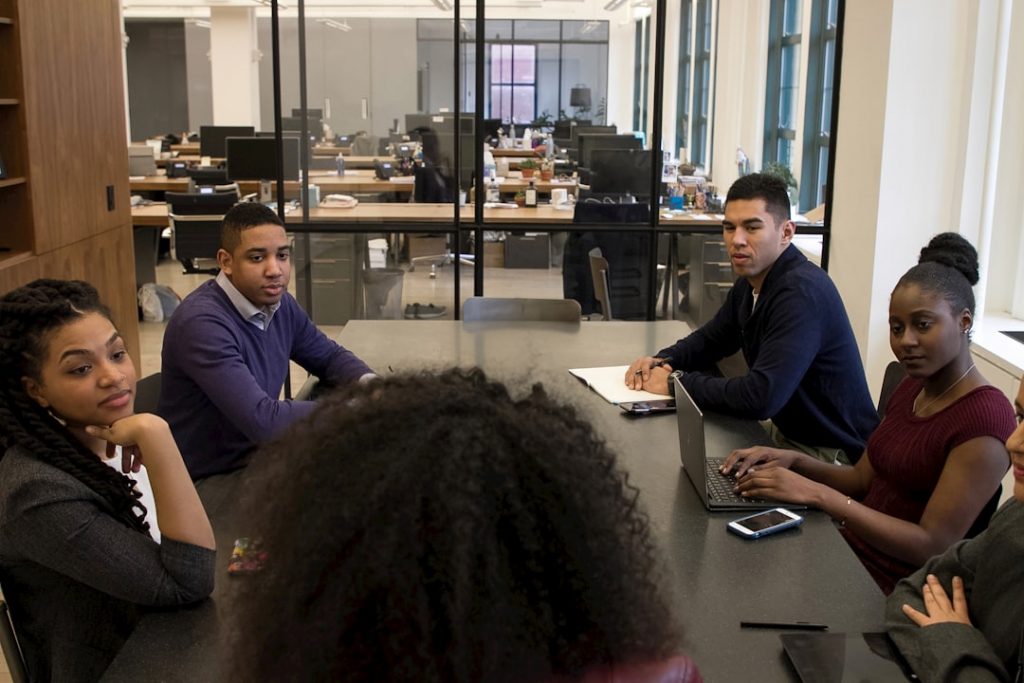Occupational rehabilitation centers strive to bridge the gap between disability and employment by providing tailored job placement services. These services are not just about finding a job; they’re about finding the right job that aligns with an individual’s abilities, interests, and career aspirations.
For people with disabilities or injuries, the journey to secure employment can be fraught with barriers and uncertainty. Job placement services help dismantle these barriers by offering personalized support that paves the way for rewarding employment opportunities.
The Story of John
John’s life took an unexpected turn when a work-related injury left him facing a future where his experience as a construction worker seemed to hold little value. The injury severely limited the use of his arm, putting a halt to his two-decade-long career.
Despondent and uncertain about his next steps, John sought assistance from an occupational rehabilitation center. The center’s job placement services became a beacon of hope for him. They helped John rediscover his capabilities and leverage his transferable skills, eventually securing him a position as a carpenter’s assistant.
The job was well-suited to his new physical limitations, and the support didn’t end there—the center continued to provide guidance as John adapted to his new role. Now, with renewed purpose, John reflects on his journey with gratitude for the life-changing assistance he received.

The Story of Sarah
Sarah’s lifelong ambition to become a nurse seemed to come crashing down after a car accident resulted in a debilitating back injury. The thought of never being able to work in a hospital again plunged her into despair.
But Sarah’s story didn’t end there; she turned to an occupational rehabilitation center for support. Through their comprehensive job placement services, she embarked on a path that led her to become a medical assistant in a physician’s office.
The center not only facilitated her job search but also provided essential training and resources to ensure her success in this alternative healthcare role. Today, Sarah is not just surviving in her career; she’s thriving, and she credits the occupational rehabilitation center for helping her turn adversity into opportunity.

Work Place Rehabilitation for a Smooth Transition
Work place rehabilitation is a cornerstone service provided by occupational rehabilitation centers. This multifaceted approach is designed to support individuals in developing the necessary skills and adaptations to perform their job responsibilities post-injury or disability.
Services such as physical and occupational therapy, ergonomic assessments, and personalized training plans are integral to ensuring a seamless transition into new or modified work roles.
The Story of Mike
Mike’s career as a mechanic spanned three decades, but it came to an abrupt halt when he suffered a stroke. The partial paralysis that followed threatened to end his work life. However, Mike was not ready to give up. With the support of an occupational rehabilitation center, he transitioned into a new career as a car salesperson—a role that accommodated his physical limitations.
The center’s work place rehabilitation services, including intensive physical therapy and training on the use of assistive devices, empowered Mike to excel in his new position. Today, Mike is not only succeeding but is also an inspiration to others facing similar challenges, demonstrating the transformative power of dedicated support.

The Story of Maria
Maria’s passion for graphic design was at the heart of her career. However, when she developed a chronic pain condition, her ability to work at a desk for long hours was compromised. Faced with the prospect of having to give up her career, Maria sought help from an occupational rehabilitation center.
The center’s work place rehabilitation services were pivotal in teaching Maria new pain management techniques and work strategies. They also assisted her in securing employment with a company that offered flexible work arrangements. Maria’s career as a graphic designer continues to flourish, thanks to the adaptable solutions and ongoing support provided by the occupational rehabilitation center.
The Importance of Worksite Assessments
Worksite assessments are a critical service offered by occupational rehabilitation centers, aimed at ensuring the workplace is conducive to an individual’s unique needs.

By conducting thorough evaluations of the work environment, these assessments pinpoint potential obstacles that could hinder job performance. The insights gained from these assessments are used to recommend necessary accommodations, modifications, or assistive technologies, thereby enabling individuals with disabilities or injuries to thrive in their professional roles.
The Story of Mark
Mark’s career as an accountant was well-established when he suddenly faced a visual impairment that made reading fine print—a fundamental part of his job—extremely difficult. His performance suffered, and his career seemed to be in jeopardy.
However, after undergoing a worksite assessment through an occupational rehabilitation center, Mark discovered that there were numerous ways to adapt his workspace to his new needs. The center provided him with specialized assistive technology and training, which allowed him to continue his accounting work with confidence. Mark’s continued employment at the same company is a testament to the effectiveness of worksite assessments and the adaptability they can foster.

The Story of Karen
Karen’s enthusiasm for teaching was undiminished by the car accident that left her with a spinal cord injury. However, her ability to navigate the classroom was severely impacted. Not one to be deterred, Karen turned to an occupational rehabilitation center for help.
The worksite assessment conducted at her school identified several modifications that could be made to her classroom to accommodate her new mobility needs. With the center’s guidance on using assistive devices and managing her injury, Karen was able to return to teaching. Today, she continues to engage and inspire her students, proving that with the right support, challenges can be transformed into victories.

The Role of Job Readiness Programs
Job readiness programs offered by occupational rehabilitation centers are crucial in preparing individuals for the workforce.
These comprehensive programs address various aspects of job preparation, from resume writing and interview techniques to networking strategies and job search assistance.
By equipping clients with these essential tools, job readiness programs instill the confidence and competence needed to navigate the competitive job market successfully.
The Story of James
After years of battling a chronic illness, James found himself disconnected from the workforce and lacking the confidence to re-enter it. The daunting task of finding employment seemed insurmountable until he discovered the resources available at an occupational rehabilitation center.
Through their job readiness program, James honed his resume writing skills, practiced interviewing techniques, and received personalized job search support. The encouragement and expertise provided by the center played a pivotal role in James securing employment. Today, he looks back on his experience with profound appreciation, recognizing the pivotal role the center played in reigniting his professional life.

Conclusion
The stories of John, Sarah, Mike, Maria, Mark, Karen, and James are just a handful of the countless examples that highlight the significant role occupational rehabilitation centers play in transforming lives. These facilities offer more than just services—they offer hope, empowerment, and the opportunity for individuals with disabilities or injuries to realize their career aspirations.
The dedication and expertise of occupational rehabilitation professionals continue to make an indelible mark on the lives of their clients, fostering success and fulfillment in the workplace. As these centers persist in their mission, they solidify their status as indispensable pillars of support within the community.



